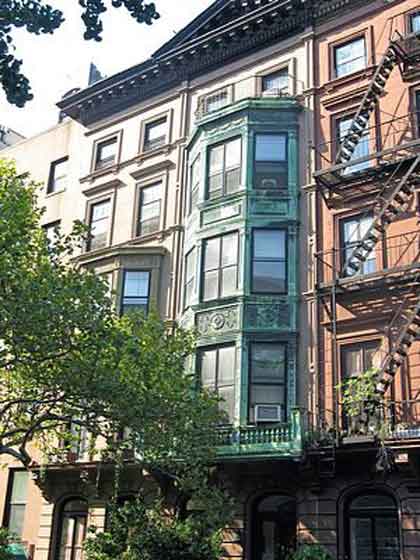
BHB Photo by C. Scales
As reported by the Brooklyn Daily Eagle, the townhouse at 23 Pierrepont Street, between Willow Street and Columbia Heights, has been sold for $1.65 million to a buyer, described as “a private investor”, who plans to convert it from its present configuration of eight apartments to a single family residence. According to the broker, John Horowitz of Marcus & Millichap, it’s an all-cash deal to close within thirty days.


